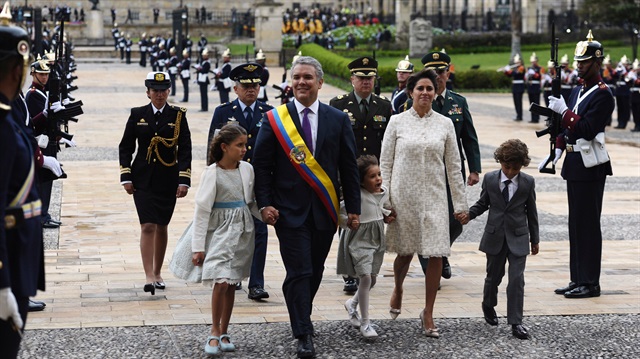
Duque expected to remain in office until 2022
Colombia’s new president, who was sworn in on Tuesday, faces a raft of challenges, including the economy and a controversial peace deal.
In his inaugural address, Ivan Duque called on Colombians to seek unity and justice. At the same time, he said he wants to make some changes to a peace agreement signed by previous president Juan Manuel Santos and former FARC guerrillas.
Duque comes from the right-wing Centro Democratico party which opposes several parts of the peace agreement. As the new president, he announced he would take a legislative initiative to Congress so that drug trafficking and kidnapping cannot be considered political crimes and therefore cannot benefit from the transitional justice that was created with the peace agreement.
"The time has come to prevent the illegal armed groups that kidnap and traffic drugs from earning profits by justifying their crimes with ideological causes," he said.
During his speech, he also promised to promote and strengthen the reintegration of FARC ex-combatants.
"I believe in the demobilization, disarmament and reintegration of the guerrilla base. Many of them were forcibly recruited or separated from their environment.”
Duque also announced that he will strengthen some policies from the previous government that were focused on solving the problem of drug production and trafficking in Colombia.
"We will be effective in the eradication and substitution of illicit crops with the participation of the communities, in the implementation of productive projects and in breaking the logistical and supply chains of drug trafficking structures," he added.
Duque also said he would evaluate the peace process being carried out with guerrillas of the National Liberation Army (ELN) during the first 30 days of his government.
"I want to make clear that a credible process must be based on the total cessation of criminal actions, with strict international supervision and defined deadlines. We want to move forward, but the Colombian people will not tolerate violence being legitimized as a means of pressure on the State,” he said.




